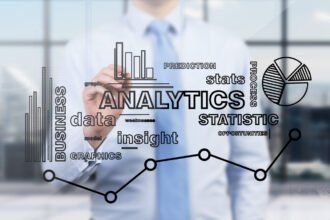Theme 4: Statistical techniques and tools are not likely to provide competitive advantage
I read this interesting post from Sijin describing his journey to master a video game (emphasis added by me)
All this kind of reminded me of my experiences with finding the perfect weapon while playing Call of Duty 4 over the past year. I spent 3 hours a day almost every day for the past one year playing this game, reaching the max prestige level (the “elite” club) in the multi-player version. I became really good at it… no matter what weapon I was using. But I remember when I started out and I really sucked, I became obsessed with finding the perfect weapon with the perfect set of perks and add-ons. I used to wander the forums asking people about which weapons and perks to use on which map and what the best tips were etc. Thinking that having the perfect weapon would make me a good player. In the end, the only thing that mattered was all the hours I put in to learn all the maps, routes, tricks and my ability (I like to think). The surprising thing was that once I mastered the game, it didn’t really matter what weapon I chose, I was able to adapt any weapon and…
Theme 4: Statistical techniques and tools are not likely to provide competitive advantage
I read this interesting post from Sijin describing his journey to master a video game (emphasis added by me)
All this kind of reminded me of my experiences with finding the perfect weapon while playing Call of Duty 4 over the past year. I spent 3 hours a day almost every day for the past one year playing this game, reaching the max prestige level (the “elite” club) in the multi-player version. I became really good at it… no matter what weapon I was using. But I remember when I started out and I really sucked, I became obsessed with finding the perfect weapon with the perfect set of perks and add-ons. I used to wander the forums asking people about which weapons and perks to use on which map and what the best tips were etc. Thinking that having the perfect weapon would make me a good player. In the end, the only thing that mattered was all the hours I put in to learn all the maps, routes, tricks and my ability (I like to think). The surprising thing was that once I mastered the game, it didn’t really matter what weapon I chose, I was able to adapt any weapon and do a decent job.
This story captures the essence of the theme of this post.
The popular statistical techniques frequently used in business analytics like linear regression and logistic regression are more than half-a-century old. System dynamics was developed in 1950s. Even neural networks have been around for more than 40 years. SAS was founded in 1976 and the open source statistical tool R was developed in 1993. The point is that popular analytical techniques and tools have been around for some time and their benefits and limitations are fairly well understood.
An unambiguous definition of the business problem that will impact a decision, a clear analysis path leading to output, thorough understanding of various internal and 3rd-party datasets are all more important aspects of a predictive analytics solution than the choice of the tool. Not to mention having a clear linkage between the problem, the resulting decision, and measurable business value. The challenge is in finding an expert user who understands the pros and cons and adapts the tools and techniques to solve the problem at hand. Companies will be better served by investing in the right analytical expertise rather than worrying about the tools and technique as the right analytical team can certainly be a source of competitive advantage.
While this theme is fairly well understood within the analytics practitioner community, the same cannot be said about business users and executives. It is still easy to find senior executives who believe that ‘cutting edge’ techniques like neural networks should be used to solve their business problem or predictive analytics tools are a key differentiator while selecting analytics vendors. The analytics community needs to do a better job in educating the business user and senior executives about this theme.
You can read the previous installments of the series here (part 1, part 2, and part 3).







